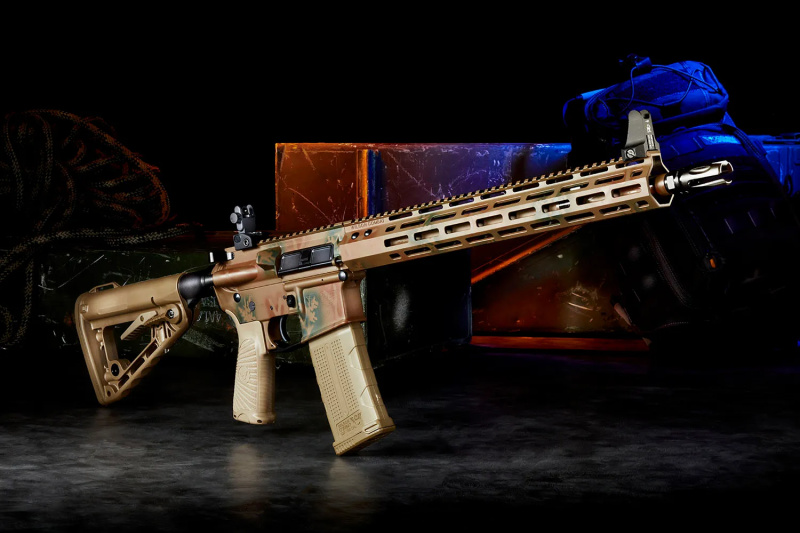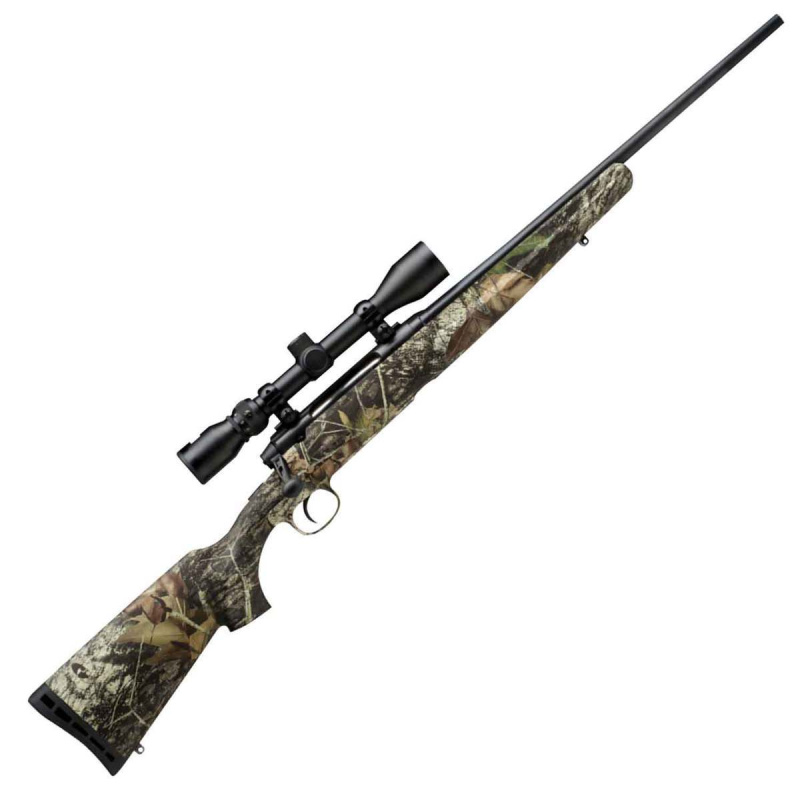If you’re new to deer hunting or simply looking to change up which rifle you hunt with, you might be looking at the .223 Remington cartridge. But can you really hunt deer with .223 Remington? There are actually a few answers to that, and we’re going to provide the details you need to make good choices this deer season. But first, note that this article isn’t restricted to AR-15 fans. There are a number of bolt-action rifles — and even a few lever-action rifles — chambered in .223 Remington that could potentially be suitable for deer hunting. Let’s talk about it.

Can you legally deer hunt with .223 Remington?
Before we even get into whether using .223 Remington on deer is a good idea from an ethical and efficacy standpoint, we need to touch a bit on what the lawbooks say. Quite a few states restrict the cartridges you’re allowed to use for deer hunting, which could limit or outlaw the use of .223 Remington cartridges in specific states. For example, Washington State requires calibers of .24 and above, meaning the .223 Remington cannot be used. This is why companies like Winchester and Federal have produced modern straight-walled cartridges for deer hunters residing in restricted states.
Check the regulations in the area in which you intend to deer hunt to be sure your desired rifle and the .223 Remington cartridge are legal for use. Don’t just go ahead and hunt with your gun anyway if it isn’t legally allowed. That’s a recipe for trouble and opens the door to a whole host of legal woes. Taking that a step further, don’t assume you can borrow a gun for the hunt, either, because some states regulate that as well. It’s your responsibility to know and follow the law.

Can you hunt deer with .223 Remington?
Yes, it’s possible to hunt and drop deer with the .223 Remington, but it all comes down to shot placement and distance. In areas where it’s legal, some hunters prefer the .223 Remington cartridge for its light recoil and affordability. But if you’re going to deer hunt with .223 Remington, make sure you’re familiar with what the round can and cannot do. While .223 Remington is an acceptable deer-hunting cartridge, it has its limitations. Take closer shots and make sure you’re using ammunition designed for hunting. Not all ammo is the same, and loads made for optimal energy transfer and expansion on deer are a must.
.223 Remington isn’t an ideal deer-hunting cartridge. While it can work, it’s not quite as effective as larger options, such as the .308 Winchester, .30-06 Springfield, or .30-30 Winchester. There’s a greater margin for error associated with .223 Remington, which is why many deer hunters don’t use it.

Can you hunt all deer with .223 Remington?
When people think about deer hunting, it’s common to immediately assume the topic of discussion is whitetail deer. However, there are a lot of other types of deer, such as:
- Blacktail deer
- Axis deer
- Mule deer
- Columbia whitetail deer
- Fallow deer
- Coues deer
Although there are certainly others, those are the deer you’re most likely to end up hunting in the United States. So, are they all the same size and equally eligible—or not—for .223 Remington?
No, they’re not. Size is something that must be taken into consideration when you’re choosing a caliber for deer hunting. Even whitetail deer vary in size by region. But when it comes to something like mule deer, you’re talking about animals that are typically significantly larger than whitetail deer. So, a round you might feel comfortable using on whitetail may not be as good of an idea on a mule deer.
Before you choose your cartridge, consider the specific target animal. It’s a hunter’s responsibility to take ethical shots and to strive for a one-shot kill, and that means using a gun that’s designed to do so.

What .223 Remington ammo works best on deer?
If you’re going to deer hunt with .223 Remington, do your homework and be sure to select the appropriate load. It should be specifically made for deer hunting and you should spend time shooting it prior to using it for hunting so you know how it will perform. A few good ammunition brands and loads to consider for .223 Remington include:
- Winchester Deer Season .223 Remington 64 grain XP Extreme Point
- Federal Fusion .223 Remington Ammo 62gr Soft Point
- Federal Premium Trophy Copper .223 Remington 55 grain Polymer Tip
- Remington Core-Lokt .223 Remington 62 grain
- Barnes VOR-TX .223 Remington 55 grain TSX
Things to look for in a good deer hunting round include a jacket that’s designed not to separate from the core, superior energy transfer on impact, and excellent weight retention and expansion. There are two schools of thought on the use of polymer-tipped bullets on game animals, with some feeling they work quite well and others being disappointed by the size and effectiveness of the wound cavity. What it really comes down to is the specific manufacturer and load. And while it’s a good idea to do your research and read reviews from hunters who have used the loads, there’s nothing like hands-on experience.
What is the effective range of .223 Remington on deer?
The exact answer to the effective range of .223 Remington depends on the specific ammunition and the gun being used. It also depends on the skills of the hunter. Generally speaking, you want a round that produces significant energy and excellent energy transfer on target. This means it should produce around 1,000 ft. lbs. of energy at the very least. That tends to mean your .223 Remington effective range isn’t going beyond approximately 100 yards. Consider it a closer-range option.
Is .223 Remington a good deer round?
Sometimes the question of whether you can use something on deer, like .223 Remington, is less about whether it’s possible and more about whether it’s wise. It’s technically possible to use .223 Remington on appropriately sized deer, but it isn’t always ethical. If you have larger caliber options it tends to be a good idea to use them. The larger the wound cavity, the faster the deer will go down. That’s both ethical and easier when it comes to the need to track a deer that runs. You are more likely to find yourself tracking a deer taken with a smaller caliber bullet than one shot with bigger bores.
Aside from the legalities in your area, the caliber you use on deer is your choice. Deer hunting is a fantastic tradition that provides family memories, time with nature, and, when successful, a freezer full of venison (which is always wonderful). As hunters, we’re fortunate to be able to feed ourselves and our families this way. Let’s make sure we do it ethically and with gratefulness for the sacrifice of the animal.
What’s your preferred go-to deer hunting round? Share your thoughts in the comments section below.


